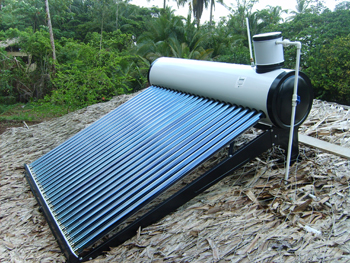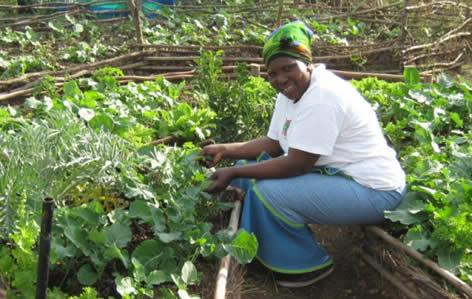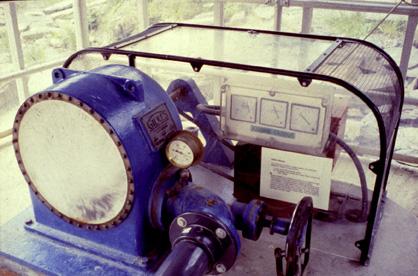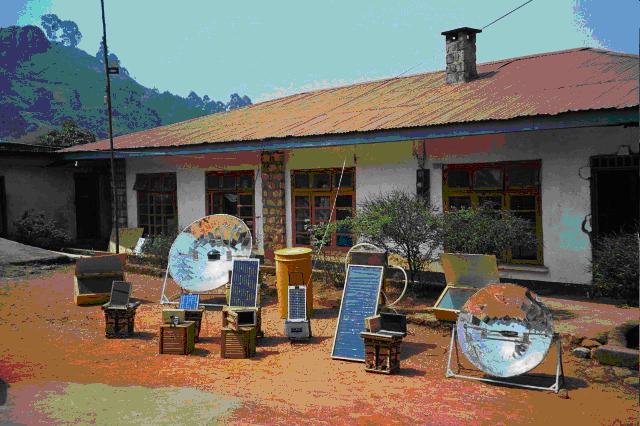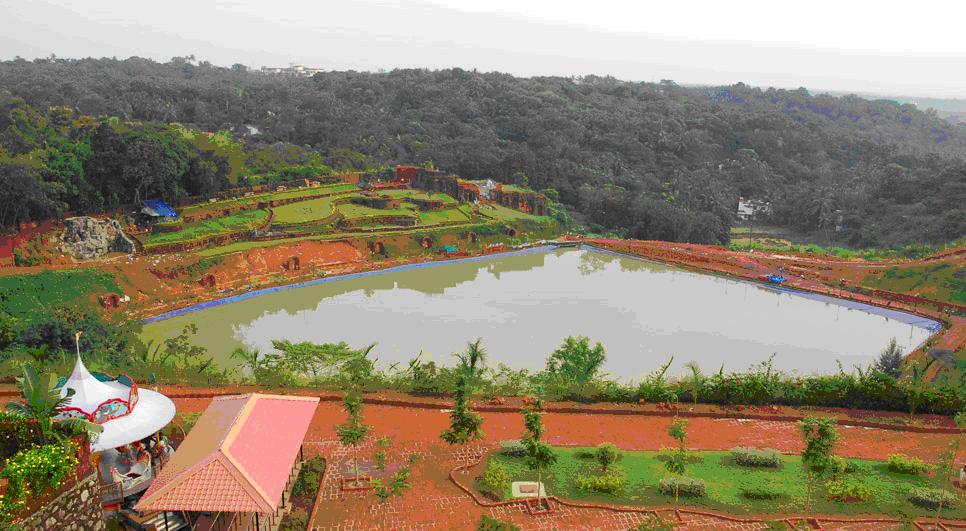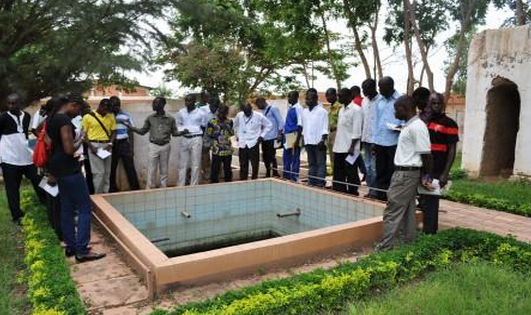Technology Demonstration Centers
Technology Demonstration Centers are places where different technologies are demonstrated, where R&D can take place, and where people can go to receive training in the production or use of particular technologies. The objective is to spread knowledge on low-cost water and sanitation options, with a focus on hands-on demonstrations.
Technology Demonstration Centers are a very effective way of spreading knowledge on low-cost options in a given region. Because a technology always needs to be adapted to the local circumstances, preferences, materials and skills, in the ideal case each region should have a Technology Demonstration Center. There are not very many Technology Demonstration Centers around the world, and the spread of low-cost technology could receive a significant boost if more would come into being.
ACREST, Cameroon
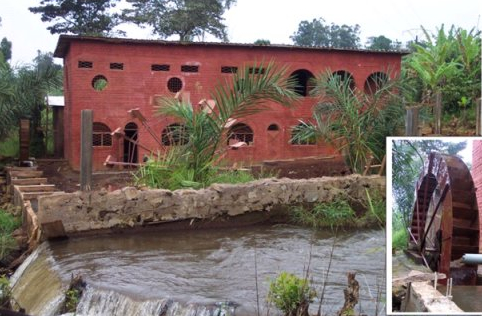
African Centre for Renewable Energy & Sustainable Technology. ACREST is a centre for information, demonstration, awareness, production and research on renewable energy and sustainable technologies in Africa.
Developed countries started their industrialization process by using renewable energies (wind energy, water power, animal power, solar energy, etc.) and applying appropriate techniques and technologies that were manufactured with local resources and not costly imported ones. All equipment was locally made. Technologies
AIDFI Techno Park, Philippines
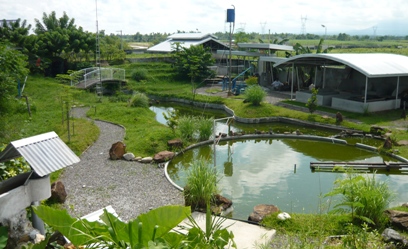
The AIDFI Techno Park is an area where different technologies which AIDFI develops are displayed. Besides this, it has a large learning centre with visual and audio facilities. It can also be rented for trainings and conferences. AIDFI has a range of technologies, including hydraulic ram pumps, rope pumps, biogas digesters, microhydro, windmills, rice hull stoves, rotary weeder, ferro-cement technology, etc.
AIDFI or Alternative Indeginous Development Foundation Inc. was founded in the Philippines in the 1990s. Since then it has been developing technologies to aid agricultural production and take care of people’s basic needs such as water and sanitation in a cheap and renewable manner. They believe these technologies are key to solving poverty and hunger problems in rural communities.
The AIDFI Techno Park is situated on the island Negros, in the Philippines.
Akvopedia article on AIDFI Technopark
APROTEC, Colombia
APROTEC is a company, which develops technologies and systems for the use of renewable energy. They focus on the efficient use of energy and respect for the environment of technologies in social development projects. They were founded in 1990 and are based in Columbia. Aprotec deals with several aspects in the field of renewable energy technologies, from the promotion and commercialisation to the development and production of these.
APROTEC performs feasibility studies, field analysis and evaluation of available natural resources and their possible uses, in particular in the area of supplying electricity to rural, isolated communities. It designs, sells and installs complete systems for alternative energy. They also work as consultants to other NGOs, public and private organisations for the adaptation of technologies in the field of renewable energy.
Akvopedia article on Aprotec Columbia
Artefact
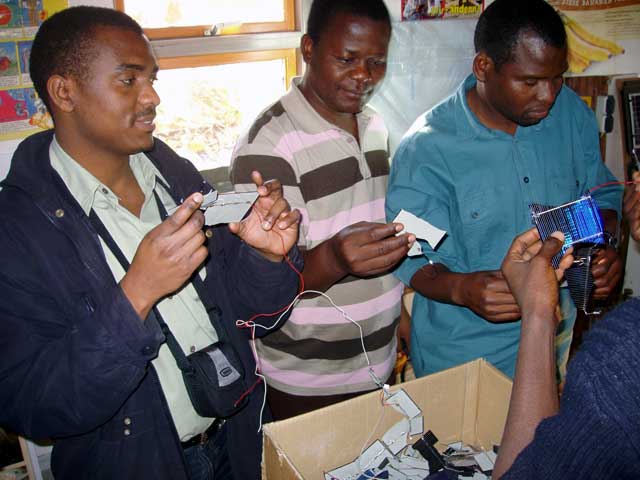
Artefact is a non-profit organization in Germany dedicated to applying and disseminating sustainable technologies. They focus mainly on using wind, solar and biomass for energy, water-resource saving techniques and sewage treatment. They maintain several plants, where technologies are developed, tested, and demonstrated to the public.
Over 10 000 visitors come each year to see among other things the biogas plants, nubian vaults, firewood saving cookers, irrigation and electrification systems for different climatic conditions operated here. Artefact also organizes excursions and events for their visitors. Besides this, the centre can be used for training workshops, seminars and conferences related to sustainable development. The centre won the 1998 European Solar Prize.
CART, South Africa
The Centre for Appropriate Rural Technology (CART) is a life skills centre in the rural village of Sicambeni in the Eastern Cape of South Africa. It was developed by South African Volunteers and is managed by the local community. Its aim is to provide a fully self sustainable model for the approximately hundred households in the surrounding village to follow. Ultimately this will become a self sustainable village, to serve as a model for other nearby villages.
The Eastern Cape is one of the poorest regions of South Africa. Because of the poverty here, people often migrate to Townships on the edge of larger cities in the hope of finding jobs. Here they are often homeless, as these townships are overcrowded. For 15 years, South African Volunteers and others worked with these migrants to build homes and communities in the townships. Now a different approach is taken to irradicate poverty in the Eastern Cape. By making the villages self-sustainable, workers do not even need to migrate to townships.
Akvopedia article on the Centre for Appropriate Rural Technology in South Africa
CAT Wales
This Centre for Alternative Technology aims to show people how to live in a sustainable manner, in rural as well as in fully developed, urban areas. The centre focuses on renewable energy, environmental building, energy efficiency, organic growing and alternative sewage systems. The centre has a range of interactive displays and other exhibits of sustainable technologies in these fields.
CAT is used for day visits by individuals or groups such as schools. They also run educational programmes ranging from one week upto a year long for people who want to learn more about sustainable development and other topics. They also publish books on these topics for example recently published: “Choosing Solar Electricity: a guide to photovoltaic systems”
Akvopedia article on the Centre for Alternative Technology South Africa
CAT, Cameroon
CAT (Centre for Appropriate Technology) Cameroon is an organization whose mission is to eradicate poverty and improve the quality of the environment in Cameroon through the development and use of appropriate technology. They are currently focusing on a Rural Electrification programme, for which local natural resources can be used to provide electricity for rural communities.
Among other things they work by developing and demonstrating appropriate technologies adapted to the local environment. They also set up and fund local organizations to manage development projects in specific communities. Further they try to educating local people and organizations on the types, uses and benefits of certain electric and nonelectric sustainable devices, for example through workshops and exhibitions. These target local technicians, schools, women's groups, hospitals, water supply authorities and others.
Akvopedia article on the Centre for Alternative Technology in Cameroon
CST India
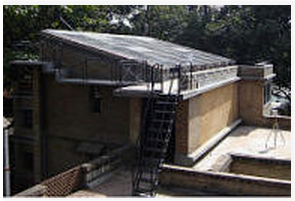
The Centre for Sustainable Technologies (CST) established as Centre for ASTRA (Application of Science and Technology for Rural Areas) in 1974, is IISc’s inter-disciplinary research and technology development centre for providing sustainable solutions to host of global concerns, primarily dealing with energy, buildings and environment. The Centre’s focus is on promoting Sustainable Technologies tailored to suit local conditions of resource availability and habitation.
Successful examples of CST’s diverse interventions are, Energy Efficient Wood Burning Devices, Biomethanation, Biomass Gasification, Alternative Building Technologies, Green Buildings and BiPV, Water Purification and Defluoridation, Sanitation, Sustainable Biomass for Energy, Forestry, Bioenergy & Climate Change, and Environmental Quality Assurance-Impact Studies.
EMAS, Bolivia
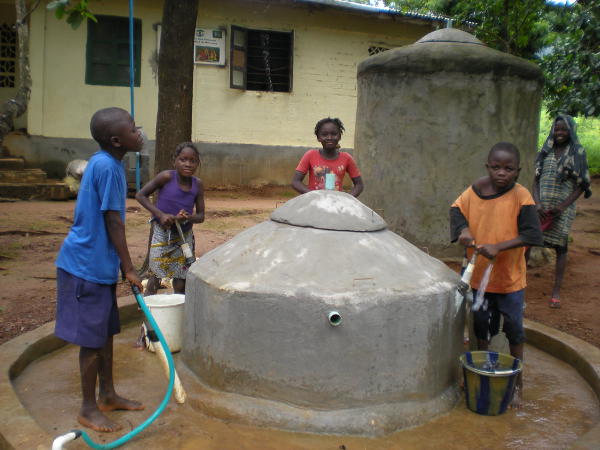
EMAS, or "Escuela Movil Aguas Y Saneamiento Basico" (Mobile school for drinking water and sanitation) was founded by Wolfgang Buchner to address the drinking water problem. EMAS has a strong focus on "assistance to self-help" and has designed a number of technologies that can be built from local materials in order to involve the communities in the development, including: EMAS well drilling, the EMAS pump, the EMAS jetting method.
EMAS runs a training center in Porto Perez, situated at the Titicaca lake in Bolivia, around an hour drive from the Capital La Paz.
SHIPO, Tanzania
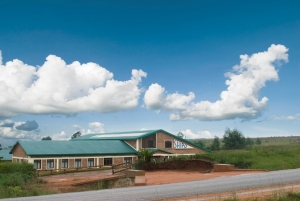
The Southern Highlands Participatory Organisation (SHIPO) is a Tanzanian Non Governmental Organisation (NGO) based in Njombe, Tanzania.
SHIPO’s aim is to facilitate organized groups (e.g. communities, women groups) with the successful implementation of self-help projects that contribute to the improvement of their living standards and the alleviation of poverty.
SHIPO facilitates people in rural villages and Community Based Organisations (CBO) to plan and execute small-scale, self-help projects in the districts of Njombe and Ludewa.
Vismaya Infotainment Centre
Vismaya is a large water theme park in Kerala India. However, they not only have water rides, but also organize informative activities on sustainable solutions. The entire park is operated by rainwater harvested from a two acre reservoir they run. Vismaya Water Theme and Amusement Park is a unit of Malabar Pleasures (India) Pvt Ltd, promoted by Malabar Tourism Development Cooperative Ltd with registered office at Parassinikadavu, Kannur, Kerala. Vismaya Water Theme Park is the one and only water theme park in India promoted by a Co-operative Society. Vismaya has incorporated state of art technology providing enjoyable moments for entire family and is uniquely blessed with amazing beautiful location - A visual treat for all guests who visit Vis~aya. Carefully chosen special rides provides excitement and pleasure to all ranging from kids to teen, youth to couples, and adult to seniors. Vismaya is well managed under the effective stewardship of Chairman Mr.Vadi Ravindran and General Manager Mr. P.P Chandran supported by a team of dynamic board of directors.
WSA (formerly known as African Regional Centre for Water and Sanitation or CREPA)
NOTE: THIS CENTER IS CURRENTLY UNTRACEABLE ONLINE.
They complement the efforts of the AU, AMCOW, NEPAD and other regional institutions, which provide political leadership and policy direction, by providing technical leadership in evidence-based policy advice, innovative and sustainable approaches, and advocacy services in the provision of water, sanitation and hygiene services in Africa. WSA was established in 1988 as the African Regional Centre for Water and Sanitation (CREPA) in Burkina Faso and has now spread to 22 countries in West, East and Central Africa. Since its establishment, the organization has never ceased to develop and promote innovative, workable and context specific approaches and technologies in almost every thematic area in WASH.
The WSA technology demonstration site at the Head Office in Ouagadougou continues to serve as a learning centre for many water and sanitation professionals and students in Burkina Faso.
A recent learning visit to the site was by some 28 students from the School of Water and Forest Resources (ENEF) in Burkina Faso on Wednesday 27th June. ENEF trains environment-oriented professionals on various scientific, technical, legal and economic modules in environmental protection.
Others
If you are aware of other Technology Demonstration Centers, please add them, or let us know!
